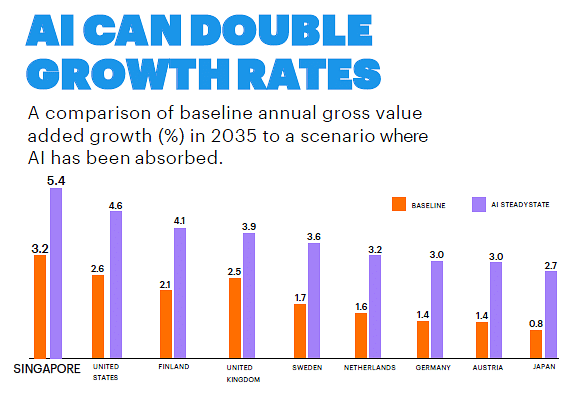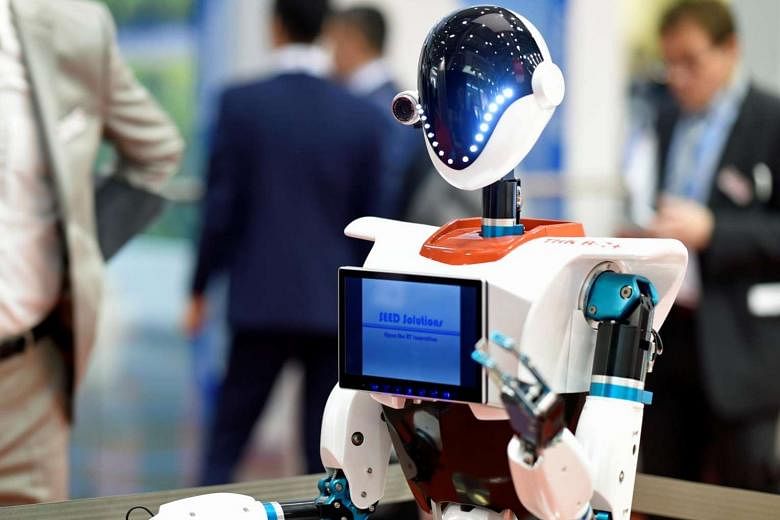SINGAPORE - Artificial intelligence (AI) could nearly double Singapore's annual economic growth rates by 2035, according to research by global professional services firm Accenture.
The research also found that Singapore is at the forefront to integrate innovation and technologies into the wider economy, ahead of the largest economies in the world such as the United States, Germany, United Kingdom and Japan.
Accenture Research, in collaboration with Frontier Economics, modelled the impact of AI in 33 economies that together generate more than 80 per cent of the world's economic output. The research compared the size of each country's economy in 2035 in a baseline scenario, which shows expected economic growth under current assumptions, and an AI scenario which shows expected growth once the impact of AI has been absorbed into the economy.
AI was found to yield the largest uplift in economic growth for Singapore, potentially increasing its annual growth rate from 3.2 per cent to 5.4 per cent by 2035, translating to an additional US$$215 billion in gross value added (GVA).
This is ahead of other large economies such as the US, with AI potentially adding US$$8.3 trillion in GVA by 2035, increasing its annual growth rate from 2.6 per cent to 4.6 per cent by 2035.
In Singapore, research showed that AI will increase labour productivity by 41 per cent by 2035, the highest among the developed economies.

The potential to significantly boost the productivity of labour will be driven by innovative AI technologies that enable people to make more efficient use of their time and do what humans do best - create, imagine and innovate new things, said the report released on Thursday (July 20).
With the adoption of AI, Singapore would only require 13 years for its economy to double in size, while without AI, it will take the country 22 years, it said.
The productivity increase dramatically reduces the number of years required for the largest economies in the world to double in size. This "doubling time" is an indicator of economic development and the results are primarily driven by a country's ability to diffuse technological innovations into its wider economic infrastructure.
In the UK, AI could add an additional US$$814 billion to the economy by 2035, increasing the annual growth rate of GVA from 2.5 to 3.9 per cent.
Japan has the potential to more than triple its annual rate of GVA growth by 2035, and Finland, Sweden, the Netherlands, Germany and Austria could see their growth rates double.
"As Singapore advances its Smart Nation vision, the adoption of AI will propel economic growth and potentially serve as a powerful remedy for stagnant productivity and labour shortages," said Lee Joon Seong, managing director, Asean Accenture Analytics Lead. "The combinational effect of AI, cloud, sophisticated analytics, robotics and other emerging technologies is already starting to change how work is done by humans and machines, and how organisations interact with consumers in startling ways."


